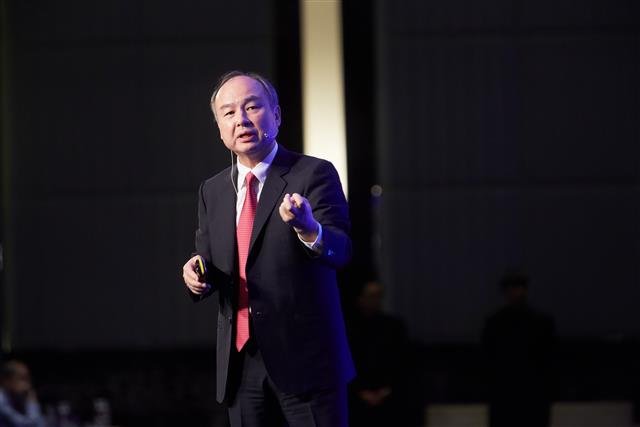According to numerous media outlets, SoftBank chairman and CEO Masayoshi Son suggested on September 22 that Arm and Samsung should form a strategic partnership as plummeting technology equities globally hinder SoftBank’s ongoing intention to put Arm on the public market in 2023. In an effort to raise the value of the chip design company, Son reportedly disclosed plans to visit South Korea for discussions with Samsung regarding the strategic collaboration.
After Nvidia’s US$40 billion takeover effort from February 2022 failed, SoftBank paid US$32 billion for Arm, and Arm’s IPO became a top goal. According to Nikkei Asia, Son has been considering what to do with Arm “nearly everyday.” SoftBank reported a record loss of JPY3.16 trillion (US$23.5 billion) for the first quarter of fiscal 2022. However, Arm also reported a record revenue of US$719 million for the first quarter of fiscal 2022, marking the first time that its quarterly royalty sales exceeded US$400 million. According to earlier reports, SoftBank planned to list Arm before March 2023, hoping to achieve a valuation of at least US$60 billion.
A Samsung executive told Financial Times that if SoftBank proposed to sell Samsung Arm, the South Korean corporation would have to “examine it on a general basis” because “a strategic alliance is a vague and wide concept.” At a shareholders meeting in March, the South Korean memory goliath SK Hynix also discussed Arm as a potential takeover target, according to Nikkei Asia. Industry titans like Samsung, SK Hynix, Intel, and Qualcomm are said to have expressed interest in acquiring Arm through a consortium on numerous times over the previous two years, but no solid plan has materialised, particularly after Arm sued Qualcomm in September 2022.
Arm’s IPO has become even more challenging as a result of London’s latest effort to convince SoftBank to pursue a dual listing. The former British prime minister Boris Johnson had been in discussions with SoftBank about listing Arm on the London Stock Exchange, but those discussions came to an end after Johnson left office. Recently, the negotiations with SoftBank were restarted by Elizabeth Truss, the new British prime minister. However, the turmoil in the stock market is not the only issue that makes the decision to list Arm on NASDAQ difficult. According to Financial Times, those participating in the discussions stated that SoftBank had taken US regulatory risks into account as a result of the recent US government decision to prohibit Nvidia from exporting advanced chips to China.
However, Arm’s possible relationship with Samsung is not just driven by money. According to a senior Arm official who spoke to DIGITIMES Asia, “potential collaboration with Samsung includes near-memory computing for AI, and Samsung could deliver the memory that suits the required memory architecture.” In fact, the growing need to handle AI workloads is revealing the limitations of the traditional Von Neumann architecture, which has up until now supported general-purpose computing. In this architecture, data and instructions are both stored in the same memory and accessed by the CPU via a single bus. Efficiencies have been hampered by the energy required to move data between processors and memories, despite the fact that this technology is programmable and ideal for machine learning. Because they reduce the distance between memory and logic units, near-memory and in-memory computer designs have gained popularity as solutions to memory bottlenecks.
In actuality, Samsung asserted in January 2022 that it had created the first in-memory computer system in the history of the world based on a magnetoresistive RAM (MRAM) array chip, allowing for simultaneous data storage and processing. The chip, according to the manufacturer, classified handwritten numbers with an accuracy of 98% and detected faces in situations with a 93% accuracy. In conjunction with Samsung Electronics Foundry Business and Semiconductor R&D Center, Samsung Advanced Institute of Technology served as the project’s principal investigator.




